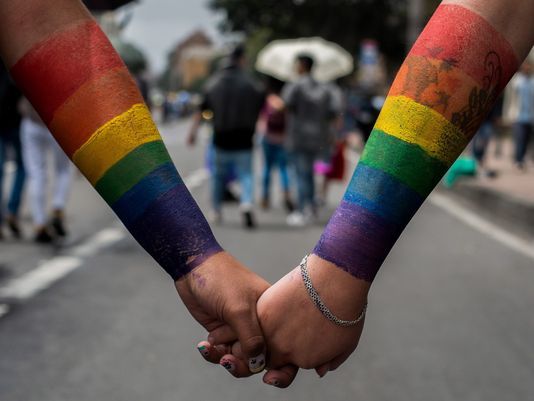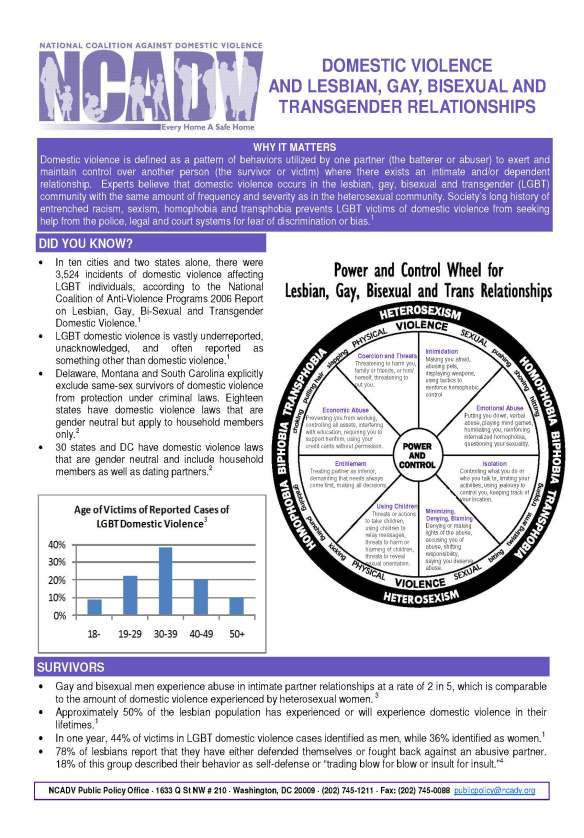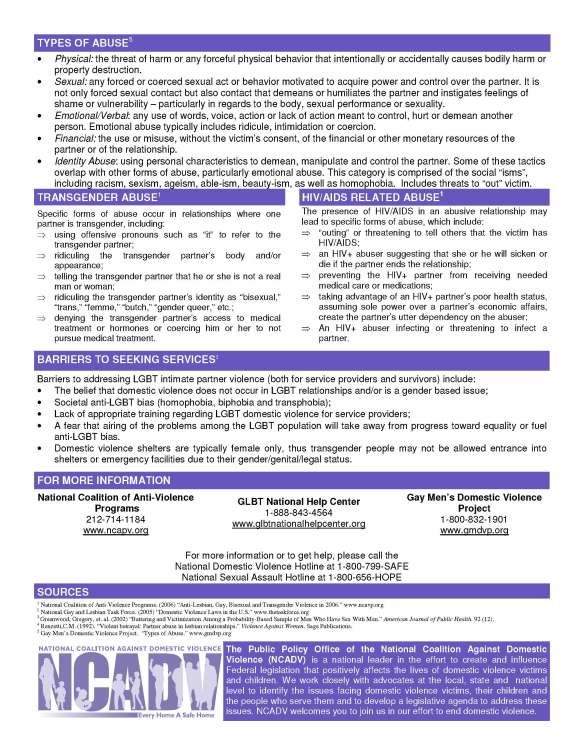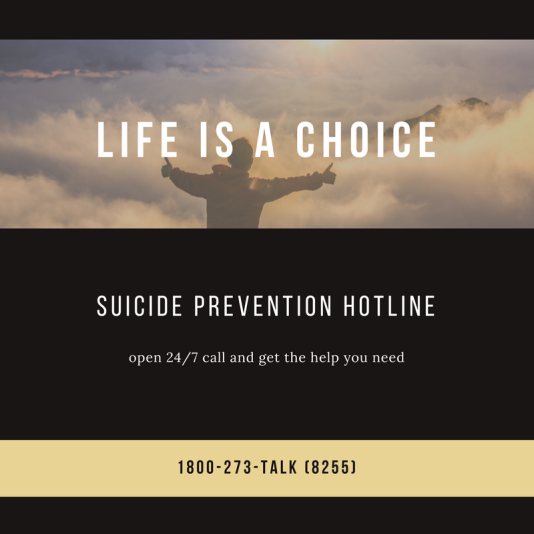Specific issues/concerns unique to LGBTQ victims of domestic violence:
- LGBTQ domestic violence abusers may “out” (or threaten to “out”) their victims, thereby exposing victims’ sexual orientation, gender identity, and/or HIV status to family, employers, police, religious institutions, the community, or child protective workers.
- LGBTQ domestic violence perpetrators often control their partners’ expressions of sexual identity and connections to and within the larger LGBTQ community.
LGBTQ domestic violence perpetrators may sabotage or disallow a transgendered partner access to his/her prescribed hormones, often medically required during the transition process. - LGBTQ domestic violence perpetrators may use children in common to manipulate and control the victim around issues of custody and visitation, particularly in cases where the child(ren) are biologically related to the perpetrator and may or may not be legally adopted by the victim.
- Leaving an abusive LGBTQ relationship is not easy despite a common false assumption that because LGBTQ relationships are not legally recognized in the same way that heterosexual relationships are, that the abuse is not serious and the victim should easily be able to leave the relationship.
- Service providers and/or first responders often make assumptions about, and perpetuate the myth that same sex intimate partners cannot perpetuate (or be victims of) domestic violence, as both partners are assumed to share equal social standing, earning potential, and physical strength, and are therefore unable to exert power and control over, or be controlled by an intimate partner.
- Dual Arrests are common within the LGBTQ community, as the lack of gender disparity often makes primary aggressor determinations more challenging than the statistically established norm of male perpetrator/ female victim within heterosexual domestic violence.

Barriers to Addressing LGBTQ Domestic Violence:
- LGBTQ individuals may be overlooked by mandatory domestic violence victim notification at hospitals
- Service availability and appropriately trained staff are often limited or nonexistent.
Many NYS domestic violence shelters prohibit male victims from entering their facilities. - Most domestic violence victim support groups are designed for female victims of male partners.
- Individuals who have not publicly disclosed their LGBTQ status, who have that information exposed by an abusive partner, become more visible, putting them at risk for becoming vulnerable targets for general criminal behavior even outside of their intimate relationships.
What resources are available to LGBTQ victims of domestic violence?
- Legal Rights and Resources In addition to the Domestic Incident Report (DIR) that all police officers are required to complete for any reported domestic incident, there are several legal avenues available to the LGBTQ population in responding to domestic violence.
Some applicable laws include but are not limited to:
Expanded Access Law: (passed on July 21, 2008) Expanded Access to Family Court and civil orders of protection to persons who are or have been in an intimate relationship, even if they have never lived together, or were never related by blood or marriage, or never had a child in common. This includes heterosexual or same-sex dating couples, including adolescents and teens.
Unemployment Law: (Effective May 20, 2009) Extends unemployment benefits and provides benefits to individuals who separate from employment for a “compelling family reason,” including domestic violence. Expands prior law, which covered victims, to include cases where the safety of an immediate family member is at risk.
Hate Crime Statute: (passed on June 10, 2000) Is designed to protect New Yorkers from violence motivated by prejudice and hate because of race, color, national origin, ancestry, gender, religion, religious practice, age, disability or sexual orientation.
The New York State Domestic and Sexual Violence Hotline English: 1-800-942-6906/ Spanish: 1-800-942-6908
24-hour, toll-free, all-language Domestic Violence Hotlines that can assist LGBTQ victims of domestic violence with finding support and shelter services statewide.
Additional Resources:
Anti-Violence Project (AVP)
National Coalition of Anti-Violence Programs
Hate Violence Against LGBTQ in America 2008
Information provided by Office for the Prevention of Domestic Violence



